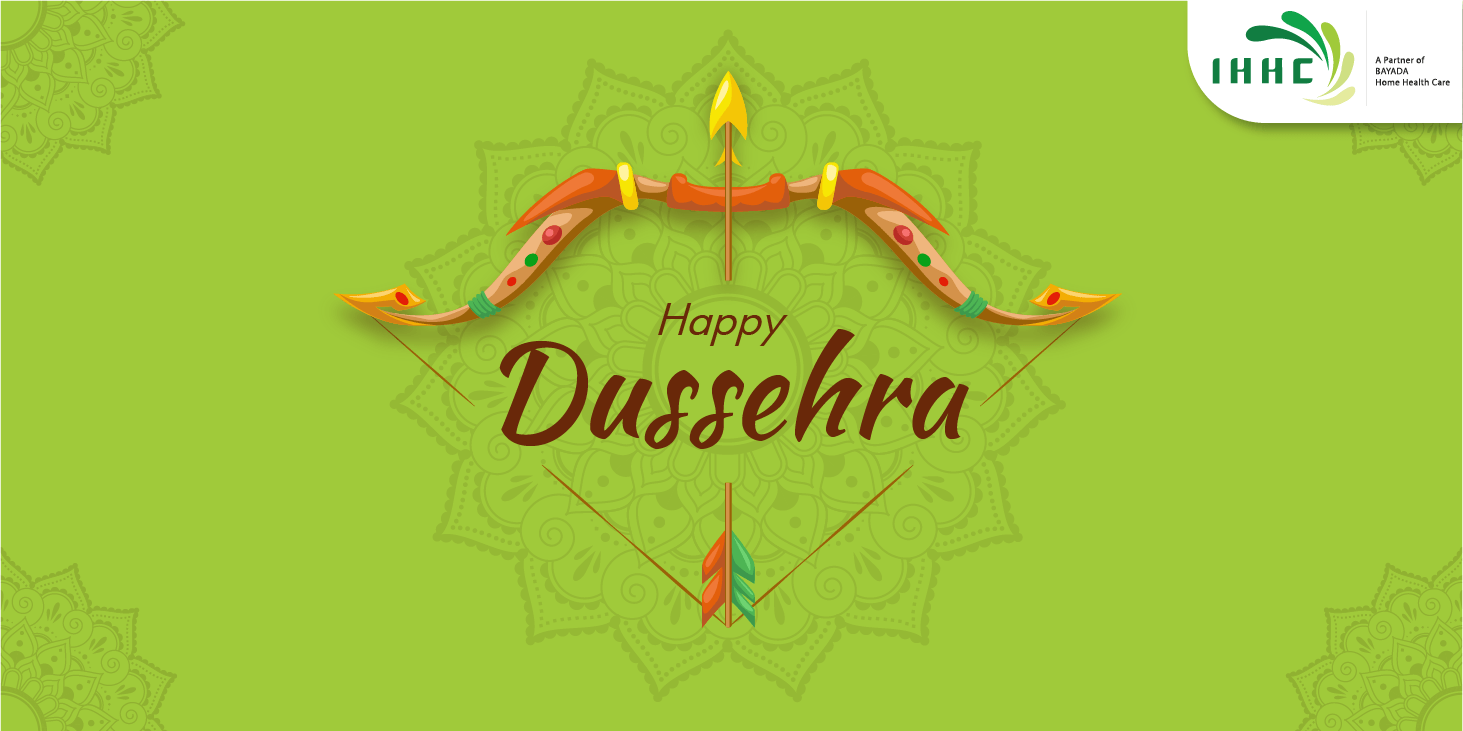Is there a need for home healthcare in India?
The festive season has started! For the next few weeks, in almost all the nooks and crannies of the nation, there will be celebrations and rejoicing as people commemorate the victory of good over evil. Dussehra, Navratri and Durga Puja – each festival has one common idea behind it: Good always wins.
Dussehra
Dussehra is celebrated right across the country. In north India and some parts of the south, the festival is linked to the epic battle between Lord Rama and the ten-headed Ravana. Towering effigies of Ravana, and his brothers Meghanada and Kumbakaran, are burnt as part of the Dussehra celebrations.
Navratri
The nine days of Navratri signifies nature shedding the old, and life being born anew in mind, spirit and body. A festival of celebration and merry making, people from different regions celebrate the festival differently. Each of the nine days is devoted to different forms of the Goddess Durga, with specific colours being associated with the different avatars. Special foods are prepared through the nine days, reflecting the colour for the avatar of each day. These nine days are also days of fasting – which have deep physical and psychological impact on our bodies, and should not be considered merely as religious practice.
"You don't fast to please God. Eating the type of food that purifies the body is fasting. We fast to give some rest to our stomach, liver and other internal organs. People keep eating boiled potatoes and lots of sweets during Navratri! If you eat too much, it makes you sleepy. Neither should you stay hungry. Fasting is done to cleanse the body. When the body is purified, the mind also gets purified," says Gurudev Sri Sri Ravi Shankar, founder of The Art of Living, on why one fasts during Navratri.
Durga Puja
It all started with the search for immortality. The demon king Mahishasura, practiced severe austerities, and prayed for years, seeking the gift of immortality from Lord Brahma. Pleased by his devotion and dedication, Lord Brahma appeared in front of him and granted him his wish, saying that his death would happen only at the hands of a woman. Hearing this Mahishasura was convinced that he was invincible and immortal. He went on a rampage of death and destruction - killing people and disrupting sages during their meditations. That’s when the Gods decided that it was time to rid the world of Mahishasura.
But, according to legend and mythology, when all the male Gods couldn’t defeat Mahishasura, they went to Goddess Durga (an incarnation of Goddess Shakti) and entrusted her with the task of putting an end to his evil deeds on earth. In her 10 arms, the Gods vested their most precious weapons. The battle royal ran for several days, until Goddess Durga severed Mahishasura's head with her trishool (a three headed spear). Goddess Durga defeated Mahishasura and earned the name of Mahishasura Mardini. The epic battle of Durga and Mahishasura is symbolic of the ultimate victory of good over evil.
Durga Puja is also meant to celebrate Ma Durga’s journey to her maternal home. The last day of the week long festivities, Bijoya Dashomi, marks the Goddess' return to the heavens. Married women bid a tearful goodbye to the Goddess, during what is known as Shindoor Khela, with lots of sweets, sindoor and betel leaf as part of their offerings. After the immersions, people gather at each other’s homes to wish each other Shubho Bijoya (Happy Victory) and celebrate the occasion with good food, good wishes and lots of mouth-watering sweets.
The folks and legends may differ completely from each other across the country but the rationale and thinking behind Dussehra or Vijay Dashmi is the same. In the final analysis, good will triumph over evil. And peace will be restored after chaos and destruction. On these auspicious days, people pray for prosperity and health – for themselves, their family and friends. And, the world at large. Happy Dussehra to everyone!




